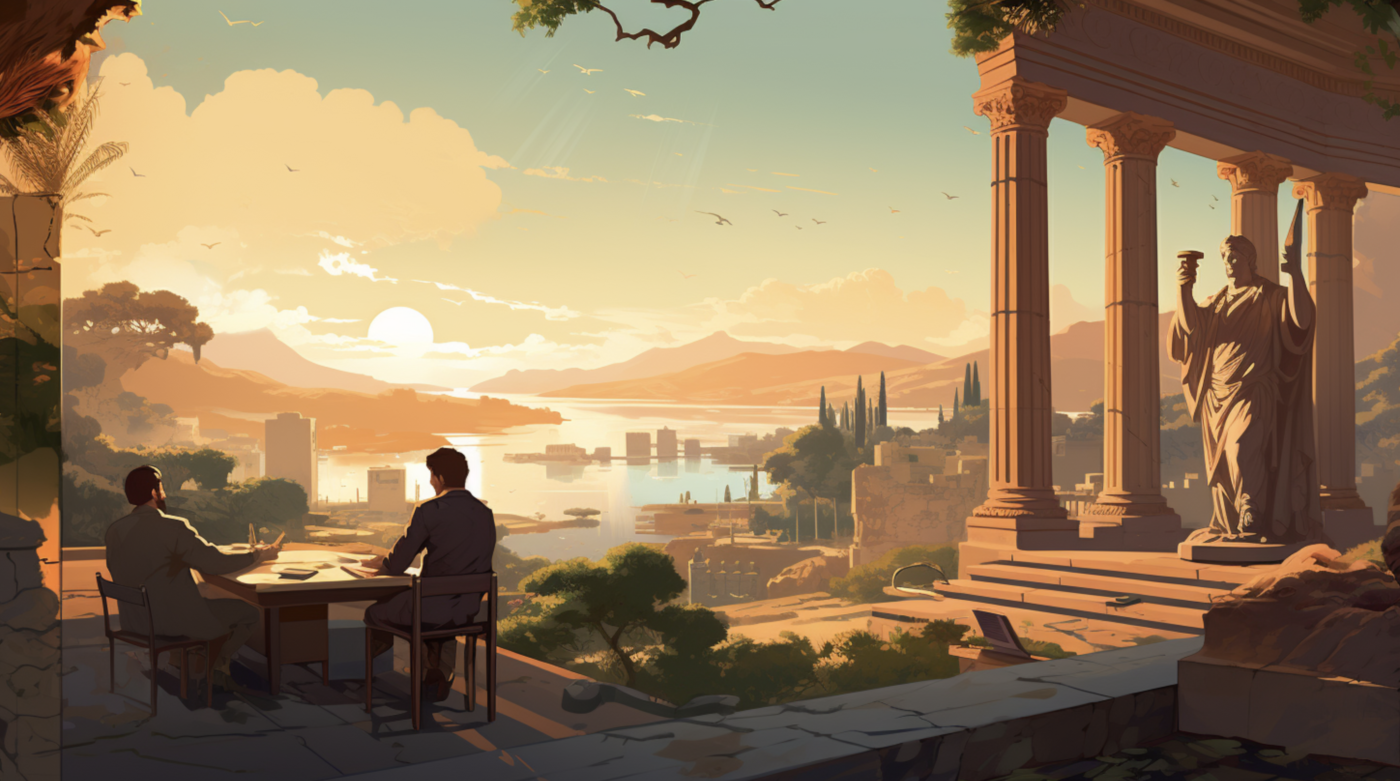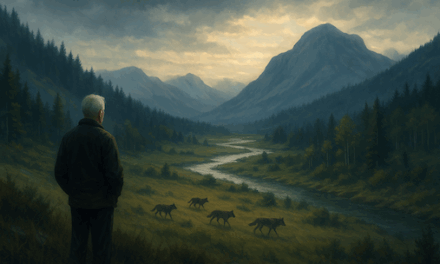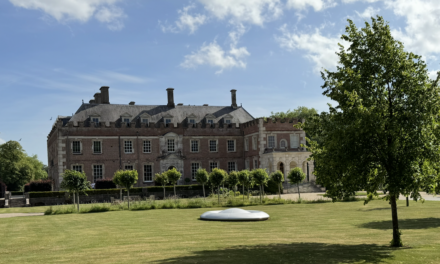Introduction
For the past twelve months, I have devoted much time and attention to developing and delivering a twelve-part series of seminars for the Shepway District u3a called “Science, Philosophy, and Spirituality”. My intuition told me that wisdom was to be found not in any one of these domains to the exclusion of all others, but rather in some measure, in all three.
Creating and delivering the programme has been both stimulating and challenging, and during the course of it I have learned many things that I didn’t know at the outset. It’s been fun, and the discussions with the great bunch of people who attended the seminars, and the “aha” moments that came my way five or six times during the year, were ample reward for the effort.
As I neared the final seminars of the series, however, I was increasingly faced with the question of what to do next year. It felt to me as if there was a picture emerging from the programme that was more than simply a review of how the three disciplines complemented and challenged each other. A part of my original motivation had been a recognition of the impact we humans are having on the Earth’s ecology and systems, and a sense that human nature and our worldviews somehow lay at the root of both our achievements and the challenges that we face.
A review of the whole series suggested that they could tell a different story apart from my original search for wisdom. A story of how in the West we came to think about the world the way we do. And perhaps, even, how that might be a part of the reason why we are having such difficulty in responding to our challenges. This article is both my first attempt to outline that story, and a rough description of next year’s fourteen-seminar series.
Sowing the Seeds



The Birth of Western Philosophy
The history of Western thought has its roots in the foundational contributions of early Greek philosophers, notably Pythagoras and the Pre-Socratics, as they laid the groundwork for modern intellectual traditions. Pythagoras, best known for his work in mathematics, also introduced a spiritual dimension to intellectual inquiry, advocating a cosmos governed by mathematical harmonies and ethical principles.
Preceding Pythagoras, early Greek philosophy had already begun to explore elemental theories of matter and cosmology. This philosophical groundwork led to the significant contributions of Socrates, Plato, and Aristotle, who formalized methods of logical reasoning, ethical frameworks, and scientific inquiry. Influenced by the unique socio-political landscape of the Greek city-states, these thinkers exemplified a robust sense of personal agency and individualism, principles that were integrated into Western thought.
The Greeks were pioneers in drawing a distinction between the subjective and the objective, inventing the concept of ‘nature’ as distinct from human activity. Despite their limitations—such as Aristotle’s rudimentary understanding of causality—these early contributions endowed Western thought with an enduring commitment to critical reasoning, empirical study, and democratic principles.
Thus, early Greek philosophy not only introduced a systematic approach to questioning the world and human existence but also provided the intellectual tools that would be elaborated upon by later scholars, scientists, and thinkers, shaping the course of Western intellectual history.
The Roman Empire and Christendom
The Roman Empire’s adoption of Christianity under Emperor Constantine in the 4th century had profound implications, setting the stage for medieval Europe’s religious, cultural, and political landscape. The Edict of Milan in 313 AD legalized Christianity, and the Council of Nicaea in 325 AD sought to unify Christian doctrine, effectively integrating the faith into the fabric of Roman governance and law.
As the Western Roman Empire declined and eventually fell, the Church entered the power vacuum, becoming the dominant social and political institution. Christian monasticism preserved and propagated classical knowledge, while the Church’s hierarchical structure provided a measure of stability and governance. Moreover, the Church played a central role in art, science, and education, embodying the fusion of Roman organizational skills with Christian spirituality. This synthesis helped shape medieval European societies and their legal systems, educational institutions, and cultural traditions.
The Roots of Modern Science
The intellectual cross-pollination between medieval European scholars and Islamic intellectuals during the Middle Ages was a pivotal catalyst for the emergence of modern science. Islamic scholars preserved and expanded upon classical Greek and Roman knowledge during Islam’s Golden Age, advancing astronomy, mathematics, and medicine.
Medieval European scholars encountered these works often through translations into Latin from Arabic, igniting a renaissance in scientific inquiry and the liberal arts. Centres of learning like the University of Toledo in Spain became melting pots of Islamic, Jewish, and Christian scholarship.
One of the most significant transfers of knowledge was in astronomy, where the works of Islamic scholars like Al-Battani and Al-Farabi were translated and studied in Europe. This laid the intellectual groundwork for the Copernican Revolution in the 16th century, where the heliocentric model of the universe replaced the Earth-centered Ptolemaic system. This shift revolutionized scientific understanding and laid the foundations for the Scientific Revolution that would follow, fundamentally altering how the West perceived the natural world.
The Modern Mindset



The Enlightenment: How the West became WEIRD
The Scientific Revolution and the Enlightenment were transformative epochs that collectively gave rise to what is now described as WEIRD (Western, Educated, Industrialized, Rich, Democratic) culture. The Scientific Revolution, spearheaded by figures like Copernicus, Galileo, and Newton, fundamentally changed how humanity understood the natural world, shifting from faith-based explanations to empirical observation and rational analysis.
This laid the groundwork for the Enlightenment, a period where reason, individualism, and scepticism of authority became paramount. Thinkers like Voltaire, Rousseau, and Kant questioned traditional religious, social, and political norms, advocating for human rights, democracy, and scientific inquiry. These periods collectively instigated significant societal shifts, including the separation of Church and state, the rise of democratic governance, and an emphasis on individual autonomy and rationality—salient elements of modern WEIRD culture.
Moreover, the Enlightenment ideals paved the way for the Industrial Revolution, further emphasizing efficiency, progress, and mechanistic worldviews. This cultural matrix has had a lasting impact, shaping Western educational systems, legal frameworks, and social values. It is the dominant cultural paradigm influencing global institutions today.
The Theory of Evolution and the Modern Synthesis
The Theory of Evolution by Natural Selection, primarily attributed to Charles Darwin, revolutionized our understanding of the biological world by providing a unifying framework for explaining the diversity and complexity of life on Earth. Darwin’s insights dismantled long-standing views that species were static and created in their current forms, positing instead that all species share common ancestry and change over time through natural selection.
This was later integrated with Mendelian genetics in what came to be known as the Modern Synthesis, a fusion of evolutionary biology with genetics, palaeontology, and systematics. This synthesis offered a comprehensive view of how genetic variations occur, how natural selection works on these variations, and how new species arise, thereby reshaping the biological sciences. Evolutionary principles have since influenced a wide array of disciplines, from anthropology and psychology to medicine and agriculture. Concepts like ‘survival of the fittest’ and ‘kin selection’ have entered common parlance, reflecting the theory’s profound impact on how we interpret the natural world, human behaviour, and society.
Beyond the Brain: The Embodied Mind Revolution
The Embodied Mind perspective has significantly shifted the intellectual landscape surrounding our understanding of human cognition and consciousness. Traditionally, cognitive science often treated the mind as a kind of computer, processing inputs and generating outputs in a largely abstract, disembodied fashion. However, the Embodied Mind perspective argues that human cognition is deeply rooted in the body’s interactions with the world. It emphasizes that thought processes are not merely abstract computations but are shaped by the physical body and its situatedness in an environment.
Pioneers in this field, like Francisco Varela and George Lakoff, have explored how our sensory experiences, motor functions, and even emotions shape how we think, perceive, and make decisions. This perspective has had interdisciplinary reverberations, challenging the dualistic separation of mind and body and influencing fields ranging from artificial intelligence to philosophy and psychology. For example, it brings new insights into understanding mental disorders, learning processes, and human-machine interaction. By recognizing that the mind is not an isolated entity but intrinsically connected to the physical world, the Embodied Mind perspective has enriched and complicated what it means to be human.
Tools for Understanding



Artificial Intelligence
The development of Artificial Intelligence (AI) since its conceptualization in the 1950s has emerged as a transformative force in human society, redefining various facets of life and posing unique challenges. Initially envisioned as a project to create machine-based intelligence mimicking human cognition, AI has evolved from simple rule-based systems to advanced machine learning algorithms capable of ‘learning’ from data.
Pioneers like Alan Turing laid theoretical foundations, while technological advancements in computing power and data availability accelerated practical applications. Today, AI impacts virtually every sector, from healthcare and transportation to finance and national security. Algorithms recommend products, diagnose diseases, and even influence electoral processes.
While technology has brought about unprecedented efficiency and innovation, it also presents challenges humanity grapples with. Ethical concerns such as data privacy, algorithmic bias, and job displacement are pressing issues. Furthermore, the possibility of advanced AI surpassing human intelligence, known as the ‘Singularity,’ raises existential questions about human agency and ethics. As such, AI is not merely a technological revolution but a sociocultural phenomenon that requires a multidisciplinary approach to understand its complexities and implications fully.
The Search for Reality: Scientific Naturalism
Scientific naturalism is an intellectual stance that posits the natural world as the proper object of study, seeking explanations through empirical observation and the scientific method, often to the exclusion of supernatural or metaphysical factors. Rooted in Enlightenment principles, it has become the dominant framework in modern science, providing a coherent methodology for investigating the laws that govern the universe.
This perspective has been particularly influential in physics, the discipline that aims to uncover the most fundamental principles governing reality. Since the early 20th century, physics has advanced our understanding of the universe at the macroscopic level through theories of general relativity and the microscopic level through quantum mechanics. Currently, physicists are grappling with unifying these theories into a “Theory of Everything” that can describe all forces and particles in a single framework. Projects like the Large Hadron Collider and initiatives in theoretical physics, such as string theory, seek to delve deeper into the enigma of dark matter, dark energy, and the very origins of the universe.
In this quest, modern physics is pushing the boundaries of scientific naturalism itself, raising questions about the limits of empirical investigation in grasping the ultimate nature of reality.
Journey of the Universe: A Story for Our Times
Narratives like “Journey of the Universe” aim to weave together threads from history, science, philosophy, and religion to create an integrated story elucidating humanity’s position within Earth’s ecology. These narratives are part of a genre called “Big History,” which transcends traditional academic boundaries to provide a more holistic understanding of our existence. They start with the universe’s origins as described by cosmology and follow the evolutionary path that led to life on Earth, incorporating geological epochs and biological milestones.
Philosophical concepts about meaning, ethics and human purpose are interlaced with scientific facts, bridging the gap between empirical knowledge and existential inquiry. Moreover, these narratives often engage with religious and spiritual traditions, recognizing their role in shaping human perspectives about the Earth and our responsibilities towards it. By fusing these diverse disciplines, narratives like “Journey of the Universe” not only educate but inspire, challenging individuals to see themselves not as separate entities but as interconnected components of a more extensive, dynamic system. They provoke thought about sustainability, ethical responsibility, and the future of life on Earth, making them powerful tools for fostering a greater ecological consciousness.
Narratives and Perspectives



Perception and the Significance of Stories
Stories are more than mere entertainment or cultural artefacts; they serve as the scaffolding upon which human societies and individual identities are built. Narratives permeate every aspect of life, influencing how we interpret experiences, make sense of complexities, and connect with others. From early oral traditions to modern multimedia platforms, stories are the primary means of transmitting knowledge, values, and social norms across generations. They serve as cognitive frames, often unconsciously shaping our perceptions and actions. Psychological theories like narrative identity suggest that individuals construct their sense of self through an internalized, evolving story of their own lives.
Additionally, collective narratives—mythologies, national histories, or shared experiences—bind communities together, fostering a sense of belonging and identity. By resonating with universal themes like love, conflict, and aspiration, stories also have the power to bridge cultural and social divides, offering shared human experiences that transcend particular contexts. Whether in the form of religious texts, folk tales, or contemporary fiction, stories are fundamental to human cognition and social cohesion, a testament to their unique role in shaping both individual minds and collective cultures.
East versus West: The Geography of Thought
Eastern Philosophy, particularly as it emerges from ancient Chinese thought, provides a markedly different framework for understanding the nature of reality compared to the Western scientific tradition. Where Western science, under the influence of scientific naturalism, often seeks to dissect, quantify, and categorize phenomena, Eastern thought often adopts a more holistic approach.
Concepts like ‘Yin and Yang’ and ‘Wu Wei’ in Daoism, or the ‘Middle Way’ in Buddhism, exemplify an understanding of the universe as an interconnected, dynamic balance of opposites. Instead of focusing on individual components, Eastern philosophy emphasizes relationships, balance, and the cyclical patterns of nature. Even the epistemological foundations differ; while Western science places a premium on objective observation and verification, Eastern traditions often consider experiential wisdom and intuition valid pathways to knowledge.
This has implications for everything from medicine and psychology to ethics and metaphysics. While Western methodology aims for a universally applicable understanding, Eastern philosophy often embraces the local, situational, and context-dependent. The two are not necessarily in opposition but offer complementary ways to explore the complexities of existence and the mysteries of the universe.
The Entangled Relationship of Science and Religion
The relationship between Science and Religion is far more intricate than the binary categorizations of conflict or complementarity suggest. While historical episodes like the Galileo affair have been cited as emblematic of an inherent tension, many scientists throughout history, such as Isaac Newton, have been deeply religious. Similarly, religious traditions have contributed to scientific inquiry, with institutions like the medieval Islamic House of Wisdom preserving and advancing knowledge. Yet, there are undeniably areas of tension, particularly when religious dogmas make empirical claims that conflict with scientific evidence.
It’s not a one-size-fits-all scenario; the relationship varies across cultures, spiritual traditions, and scientific disciplines. In some contexts, religion and science focus on different aspects of human experience, appearing as ‘non-overlapping magisteria,’ to borrow a term from Stephen Jay Gould. However, they often intersect in seeking answers to similar big questions about the universe’s origins, the nature of human existence, and ethical considerations in technological advancements. Moreover, some theologians and scientists are engaged in active dialogue, aiming to reconcile or at least clarify the boundaries and intersections between these two ways of understanding the world. Thus, the relationship between science and religion is not merely conflictual or harmonious but is a complex, evolving entanglement that reflects broader human attempts to comprehend and navigate reality.
The Anthropocene Epoch?


The Anthropocene and Humanity’s Grand Challenges
Without a doubt, Homo sapiens has played a major part in transforming the environment on Earth, a testament to our evolutionary journey and the development of self-aware consciousness. While we share a biological heritage with other animals, our cognitive and cultural advancements have propelled us into a realm that transcends the bounds of natural evolution. So much so that geologists are considering naming the present age the “Anthropocene”, because human activity now leaves a distinct geological signature.
And that is the price we are paying for our success: we’ve precipitated an environmental crisis that threatens diverse ecosystems and possibly our own survival. From anthropogenic climate change to biodiversity loss, our actions have engendered challenges that require wisdom beyond technological fixes. The adoption of the term “Anthropocene” is not just a scientific proposal but also carries ethical and political implications. It serves as a stark reminder of the responsibility that comes with the profound ways in which humanity can shape the planet, for better or for worse.
Rethinking the Enlightenment: The Search for a New Democracy
Modern society owes much to the Enlightenment, with its contributions to knowledge, and its revolutionary introduction of liberal democracy. But the Enlightenment was an unfinished project that requires ongoing evaluation and adaptation. Our understanding of human nature is continually evolving, drawing on insights from embodied and embedded cognition. We know more about the limitations of the traditional rational and autonomous model of human behaviour and recognize the importance of considering emotions, biases, and social contexts in shaping political processes and decision-making.
Insights from ecology and earth systems science emphasize the interconnectedness of ecological systems and the need for a more holistic approach to governance. Potential conflicts between economic growth and sustainability highlight the urgency of addressing environmental challenges within the current world order. Indeed, the grand challenges we face today, such as inequality, anthropogenic climate change, and technological disruptions expose the limitations of liberal democracy in effectively addressing complex and interconnected problems.
That is why, if we are to tackle these challenges effectively, we need to evaluate innovative approaches such as deliberative democracy, sociocracy or direct democracy. And practical experiments such as the Icelandic Constitutional Council, Estonia’s E-Governance, and New Zealand’s Wellbeing Budget. We urgently need further exploration and critical engagement with ideas such as these to foster a more inclusive, sustainable and resilient global society
Textual summaries were produced with the assistance of ChatGPT Plus, and graphics were created using Midjourney and Canva.






